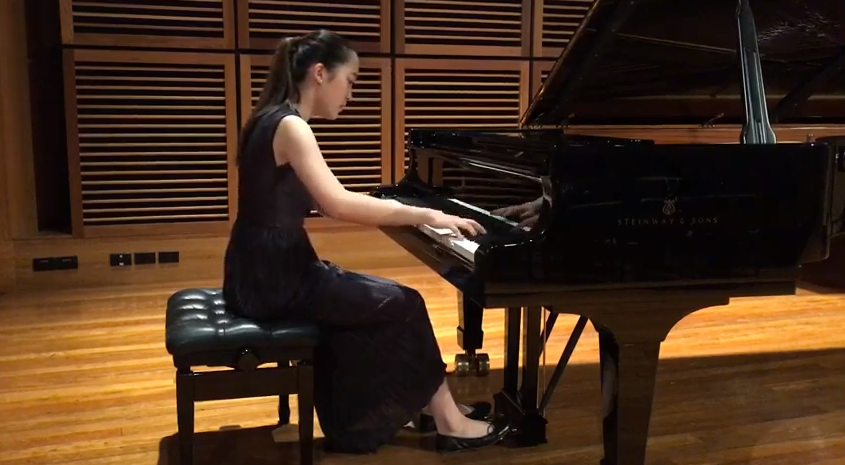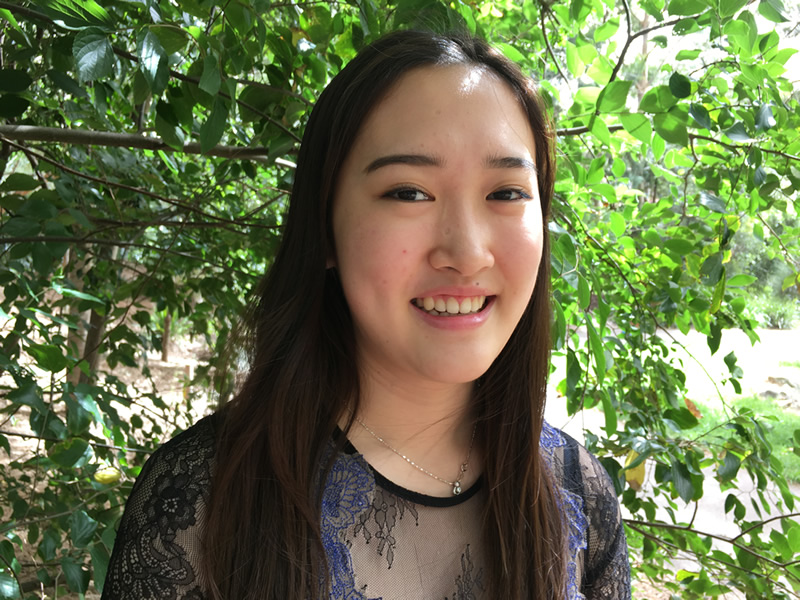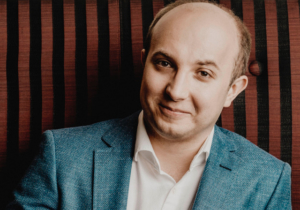An interview with our 2018 award winners:
Leanne Jin and Annie Ma
The Foundation’s two award recipients for 2018 are Leanne Jin and Annie Ma. Even though they will be entering a highly competitive and stressful world, both girls intend to become concert pianists.
Apart from playing the piano exceptionally well, how do they equip themselves to handle the demands of one of the toughest of all careers? We asked each of them some questions to find out.
- The Theme and Variations Foundation likes to keep track of how its financial assistance will help its award winners. How do you intend to apply yours?
Leanne: I intend to apply the Theme and Variations Foundation Award towards international piano competitions, and overseas performances and masterclasses in the coming years.
Annie: I plan to use the Theme and Variations Foundation Award to help with travel expenses nationally as well as overseas in places such as the US and Europe to participate in masterclasses and competitions.
- How does playing in a competition differ from playing a recital?
Leanne: For me, playing in competitions and recitals don’t differ too much as the nervousness and stress is almost always there!
Annie: In competitions, as musicians we are constantly aware of the fact that our playing is being judged by a panel. We can fall into a trap of trying to be more cautious with our interpretations. We end up not so willing to take as much risks and be more spontaneous, in order to satisfy those on the panel. Ideally, we should treat competitions like recitals and approach them with the same creative mentality.
- Are there composers and works to include and those to avoid in competitions?
Leanne: I don’t think there is a ‘wrong’ piece that must be avoided, nor is there a piece that one should definitely include. So long as the pieces chosen are ones I love and have connected to – I find that any piece would help formulate an interesting and effective repertoire.
Annie: I don’t think there are any composers or works that one should avoid performing competitions. I think every musician should perform pieces that they enjoy performing, pieces that they have a personal statement about it to share with the audience. A performance will always be more convincing that way.
- Have you had the opportunity to play a piano concerto with a full orchestra? If so, tell us about the experience.
Leanne: I had the wonderful opportunity to play Prokofiev’s First Piano Concerto with the Ku-Ring-Gai Philharmonic Orchestra in 2017 at the Chatswood Concourse in the finals of the NSW Secondary Schools Concerto Competition under the baton of Paul Terracini. The experience was unforgettable as it was the first time I had ever played with an orchestra and I am very excited to be playing under his baton again in November with the Penrith Philharmonic Orchestra!
Annie: No, not yet. I’m still working towards that goal.
- What other parts of your education are important to you and have they been beneficial to your music?
Leanne: I have found that theoretical aspects from subjects such as history and languages both indirectly influence my understanding of music as being interwoven with socio-historical events. History is one of the means through which I can study the major events of the past which affected composers and to which composers reacted to. In a similar stream, I’ve taken to learning German in order to try and understand different languages and cultures.
Annie: Working with other musicians in chamber music and collaborative piano are vital to the growth of a solo musician. From a musical perspective, sharing interpretative ideas is always beneficial. It’s particularly beneficial when initially you are not so convinced with a particular approach, but after discussing, you end up convinced. As well as sharing musical ideas, we are able to share musical experiences. Learning from others, we are able to refine our own approach to music-making, both mentally and musically.
- What do you do to relax?
Leanne: I am an avid football fan and enjoy following the UEFA Champions league, Bundesliga and World Cup. I’m also fond of reading, going to music concerts and hanging out with friends and family!
Annie: Staying active is always a good way to relax, I like to go for a jog or swim. Otherwise, I also like binge watching movies and TV shows.
- Where are you at right now with your musical studies and where you will you be headed next?
Leanne: Currently I have finished my first year at the Sydney Conservatorium of Music and I intend to finish my Bachelor of Music Performance with Honours there. Later this year, I hope to attend masterclasses and perform in America and Europe.
Annie: Next month, I will be commencing my second year at the Sydney Conservatorium in the Bachelor of Music ( Performance ) course. Furthering my studies, overseas is certainly in the books. However, as of right now, the aim is continue to try and become a better musician, each and everyday- to refine my practice approach, my technique and create better and more convincing musical interpretations.
- What do you look for in a teacher?
Leanne: I look for someone who inspires and challenges me in my music studies, whether it be music performance, analysis and contextual research – someone who supports and encourages my development as a musician.
Annie: A teacher that encourages the student to develop their own musical voice, thus giving me a generous degree of musical freedom and spontaneity. However, also I need someone, firm enough to warn me when this is not so convincing or inappropriate for the style. Apart from this, I think it is important to have a teacher that is really supportive and that you can emotionally open up with. As much as the musical journey is so physical, the practice and hard work, its unpredictability can put your mental fortitude to the test. At times when we lose our drive, for a teacher to remind us to focus on the right things, is something that I really appreciate.
- Do you get nervous before you play and, if so, what do you do to overcome it?
Leanne: Yes, all the time, so I often try to remain calm and think about what I want to portray in my music. I also try to run through the first few bars of each piece to ground myself.
Annie: Yes, I certainly get nervous before I perform. I try to remind myself that ultimately I find performing enjoyable, especially when I am able to share my interpretation of a piece that I have a personal connection with. I try to steer my thoughts away from the mishaps that might occur during the performance, like technical and memory slips
- How do you go about memorising a piece?
Leanne: I don’t go out of my way to memorise a piece – I find that it comes naturally to me once I have done a detailed analysis of the piece and have a deep contextual understanding of the work and composer’s intentions.
Annie: Knowing the harmonic structure of the piece helps with memorisation. This is followed by familiarisation of the left hand, by practising that alone. For maximum security, practising the piece back to front ensures that we are not relying on muscle memory, but knowing the piece inside out. However, I am slightly guilty of not always being this meticulous when it comes to memorisation.
- Do you have an exercise routine to maintain your technique?
Leanne: I play etudes daily and I try to play scales too, though admittedly it doesn’t happen quite as regularly as I’d like.
Annie: I don’t have a particular exercise routine apart from practicing scales and arpeggios. What I try to do, also, is to be disciplined in learning different etudes and doing so continuously in order to maintain and further refine my technique.
- If you were allowed to play only one piece, what would it be?
Leanne: At the moment, I am learning Schumann’s Kreisleriana and I am in awe at the complexity and creativity for something that was written in only four days – I could definitely spend a lifetime studying this work.
Annie: That is a difficult one to answer. It will probably be a piano concerto. I think with a concerto you have the advantage of having work that is highly pianistic combined with the bonding experience that comes with performing alongside other musicians. I’ll just say the Rachmaninov 2nd because I’m playing it now and I think it’s suits my temperament well.
- How important is sight-reading? How to you rate yourself?
Leanne: I find that it is a very crucial skill to cultivate early on as it takes a lot of time and effort to master. So far, I’d say that it would be perhaps a 7/10 – it’s still developing!
Annie: Being a fluent sight reader, certainly makes the learning process much faster. Especially, when there is limited time to get a piece or even more demandingly, an entire program to performance standard, this can be highly beneficial. I’m not trying to brag, but my sight reading skills are so (not)amazing.
- If you were offered a ticket to a piano recital by one pianist, alive or dead, who would it be?
Leanne: I would love to attend a Martha Argerich recital.
Annie: I think watching composer- pianists, someone like Liszt or Rachmaninoff perform would be pretty cool.
- If you could own any piano, what would the brand and the size be, and why?
Leanne: Definitely a Steinway and Sons Studio Grand – the same as my teacher Natalia Ricci as I’ve become used to it and it is a joy to play. I’ve also created many cherished memories with this brand in concerts and performances.
Annie: I would say either a Steinway or a Bösendorfer concert grand, both are beautiful instruments in their own way. I think Steinway for its versatility and its responsiveness to touch. The Bösendorfer has a gorgeous bell-like tone in its upper register.


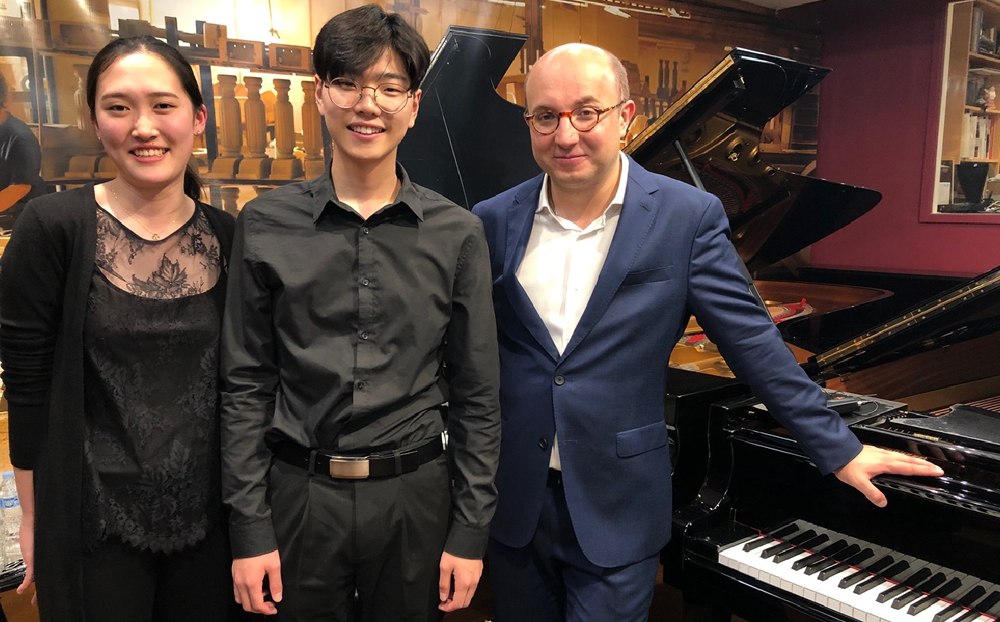


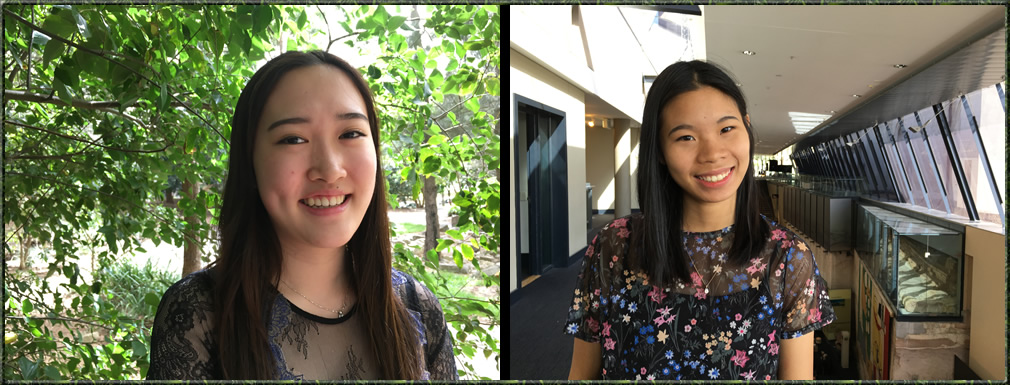
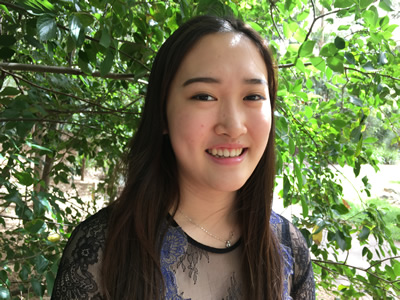
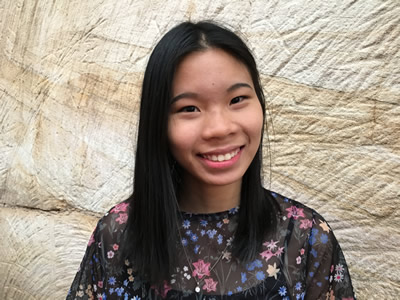

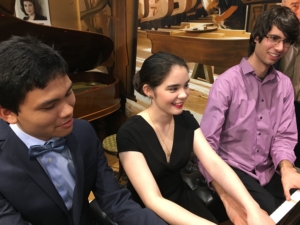 On October 30 2018 we held our annual major fundraising musical event. This time we asked three of our brilliant young award recipients to put together a joint recital. We wanted to show our donors just how worthwhile their support is, and that only with their generosity can the Theme & Variations Foundation discover and financially assist such exceptional young Australian pianists.
On October 30 2018 we held our annual major fundraising musical event. This time we asked three of our brilliant young award recipients to put together a joint recital. We wanted to show our donors just how worthwhile their support is, and that only with their generosity can the Theme & Variations Foundation discover and financially assist such exceptional young Australian pianists.